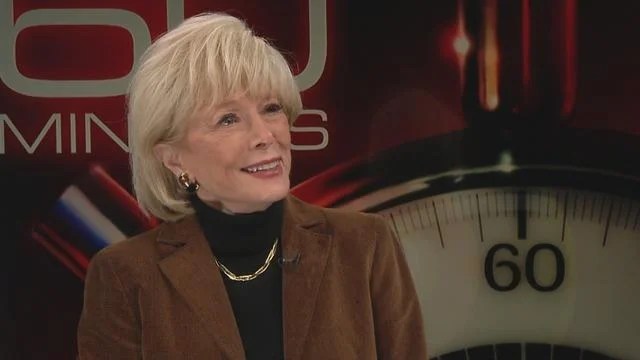In the realm of investigative journalism, few programs have achieved the iconic status of "60 Minutes." This long-running television news magazine has captivated audiences for decades, delivering in-depth reports on a wide range of topics, from politics to social issues. The reporters behind these compelling stories are not just skilled journalists; they are passionate storytellers who illuminate the truth through their work. In this article, we will explore the lives and careers of some of the most notable 60 Minutes reporters, shedding light on their contributions to journalism and society.
With a reputation for hard-hitting journalism and a commitment to uncovering the truth, the 60 Minutes reporters have become household names. But what drives these journalists to pursue stories that often require courage and tenacity? As we delve deeper into their backgrounds and motivations, we will also examine the impact they have had on the field of journalism and how they continue to shape public discourse.
Join us on this journey as we celebrate the legacy of the 60 Minutes reporters, exploring their individual stories and the collective impact they have made on journalism. From their early career choices to the defining moments that shaped their paths, we will uncover the essence of what it means to be a 60 Minutes reporter in today’s media landscape.
Who Are the Most Notable 60 Minutes Reporters?
Throughout its history, "60 Minutes" has featured a plethora of talented journalists. Here are some of the most notable names who have made significant contributions to the program:
- Mike Wallace
- Diane Sawyer
- Morley Safer
- Lesley Stahl
- Anderson Cooper
What Makes a Great 60 Minutes Reporter?
Great 60 Minutes reporters possess a unique blend of skills that set them apart in the field of journalism. These include:
- Investigative Skills: The ability to uncover hidden truths and present them in a compelling manner.
- Storytelling: Crafting narratives that resonate with audiences and hold their attention.
- Empathy: Understanding and conveying the human aspect of the stories they cover.
- Resilience: Overcoming challenges and staying persistent in the face of adversity.
How Do 60 Minutes Reporters Prepare for Their Stories?
Preparation is key for 60 Minutes reporters. Their process typically involves:
- Researching the topic extensively.
- Conducting interviews with key figures.
- Gathering data and evidence to support their findings.
- Collaborating with producers and editors to shape the final report.
What Are Some Iconic Stories Reported by 60 Minutes Reporters?
The 60 Minutes reporters have covered a myriad of stories that have left a lasting impact. Some of the most iconic include:
- The Watergate scandal
- Investigations into corporate malfeasance
- Profiles of influential public figures
- In-depth looks at social justice movements
Who Are the Current Reporters on 60 Minutes?
As of now, "60 Minutes" features a diverse team of reporters, including:
- Lesley Stahl
- Scott Pelley
- Bill Whitaker
- Anderson Cooper
What Challenges Do 60 Minutes Reporters Face in Their Work?
While the work of 60 Minutes reporters is rewarding, it also comes with its share of challenges:
- Pressure: The need to deliver accurate and timely reports can be intense.
- Ethical Dilemmas: Navigating the complexities of ethical journalism can be challenging.
- Safety Concerns: Reporting on sensitive topics may put reporters in dangerous situations.
Biography of a Notable 60 Minutes Reporter: Lesley Stahl
Lesley Stahl is one of the most recognized faces of "60 Minutes." Her career spans several decades, and her contributions to journalism have been invaluable.
| Personal Details | Bio Data |
|---|---|
| Name | Lesley Stahl |
| Date of Birth | December 16, 1941 |
| Education | B.A. in History from Wheaton College |
| Career Start | 1971 as a producer for CBS News |
| Notable Work | Correspondent for "60 Minutes" |
| Awards | Numerous Emmy Awards |
What Legacy Do 60 Minutes Reporters Leave Behind?
The legacy of 60 Minutes reporters extends beyond their individual stories. They have:
- Set a standard for investigative journalism.
- Informed and educated the public on critical issues.
- Inspired future generations of journalists.
- Encouraged accountability among powerful figures and institutions.
How Can Aspiring Journalists Follow in the Footsteps of 60 Minutes Reporters?
Aspiring journalists can take several steps to emulate the work of 60 Minutes reporters:
- Develop strong writing and communication skills.
- Gain experience through internships and entry-level positions.
- Stay informed about current events and issues.
- Network with professionals in the field.
In conclusion, the world of 60 Minutes reporters is one filled with dedication, passion, and a relentless pursuit of truth. As we reflect on their contributions to journalism, it becomes clear that their work not only informs the public but also holds a mirror to society, challenging us to think critically and engage with the world around us.
You Might Also Like
Kaitlan Collins: The Rise And Fall - Was She Really Fired?Unraveling The Love Life Of Anthony Kiedis: Who Is His Girlfriend?
Unveiling The Colorful Journey Of David Bromstad
Exploring The Shadows: A Dive Into Dark Humor Jokes
Discovering Harry: The Journey Of A Beloved Icon
Article Recommendations
- Geno Smith Wife
- Whitney Southern Charm
- How Old Is Mgk
- Is Atthaya Thitikul Married
- Arrest Org Florida
- Breaking News Rebecca Lynn Murray S Bombshell Confession Rocks Florida
- Dua Lipas Dad
- Aaron Pierre Wife
- Flavor Flav
- Retro Bowl College Unblocked Games


